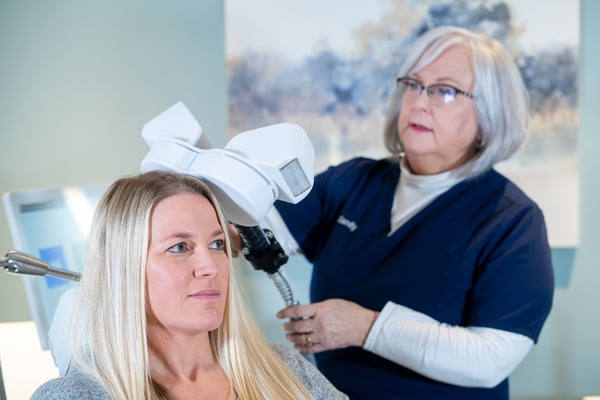Obsessive Compulsive Disorder
With advances in neuroscience and mental health there are now effective and sustainable treatment options available for OCD without the need for medication.

Obsessive-Compulsive Disorder (OCD) is a type of anxiety disorder. It is characterised by recurrent and persistent thoughts, images or impulses that are intrusive and unwanted (obsessions) which often lead to compulsive repetitive behaviours or urges (compulsions).
Most OCD patients understand that their behaviour is not rational. However, because sufferers consider the compulsions necessary to prevent related anxieties or tensions, they will continue to be performed. The compulsive behaviour aims to ignore, neutralise, or even stop the obsessive thought.
Compulsive behaviours can have serious negative impacts on sufferers and those close to them. They put stress on relationships and can inhibit a person’s ability to manage normal daily activities, such as work or study.
neurocare takes a personalised approach to the treatment of OCD. Our clinicians work with clients to uncover the underlying causes of OCD and develop customised solutions that can potentially offer long-term positive results.
Symptoms of OCD

OCD can present itself in different ways, but the most common feature is an obsession to perform certain actions or rituals in response to obsessive thoughts.
Some common symptoms include:
- Recurrent and persistent thoughts
- Thoughts and impulses are experienced as forced or irrational
- Obsessive thoughts can cause anxiety or stress
- Attempting to ignore or suppress intrusive thoughts
- Attempting to neutralise the thoughts with other thoughts or actions
- Awareness that obsessive thoughts and impulses are a product of your own mind
Treatment for OCD
Medication
Medications are a common treatment for the symptoms of OCD. In many cases, psychiatrists will prescribe antidepressants initially to help control both obsessions and compulsions.
Like all psychiatric medications, patients can experience side effects and may need to try several types of medication before finding one that helps. Although they can offer relatively quick relief from symptoms this may be temporary as the effects may wear off over time.

Psychotherapy
Psychotherapy has been shown to effective in the treatment of OCD. Therapists normally utilise a specific type of Cognitive Behavioural Therapy called Exposure and Ritual Prevention (ERP).
This treatment is based on gradual exposure to the situation or thought behind the distress. Clients are then guided to learn and practice more appropriate responses to anxiety.
This type of therapy may be used in combination with medication or neuromodulation therapy.

TMS (Transcranial Magnetic Stimulation)
The benefits of magnetic stimulation are well researched, understood, and scientifically proven as a treatment for OCD as well as Depression. TMS aims to support natural recovery from illness, harnessing the brain’s neuroplasticity and ability to change. It is fast acting with minimal side effects.
At neurocare, we combine TMS with Psychotherapy for the treatment of OCD. Research has found this combined approach is particularly effective with those who have not responded to other forms of treatment.
How can TMS help OCD
Transcranial Magnetic Stimulation therapy is a safe and recommended treatment for people with OCD or depression who have not responded to other treatments or who are seeking a medication-free alternative. Therapists at neurocare use an approach that combines TMS and Psychotherapy, scientifically proven to be more effective than either therapy alone (Donse et al. 2017).
Not sure if our services are right for you?

